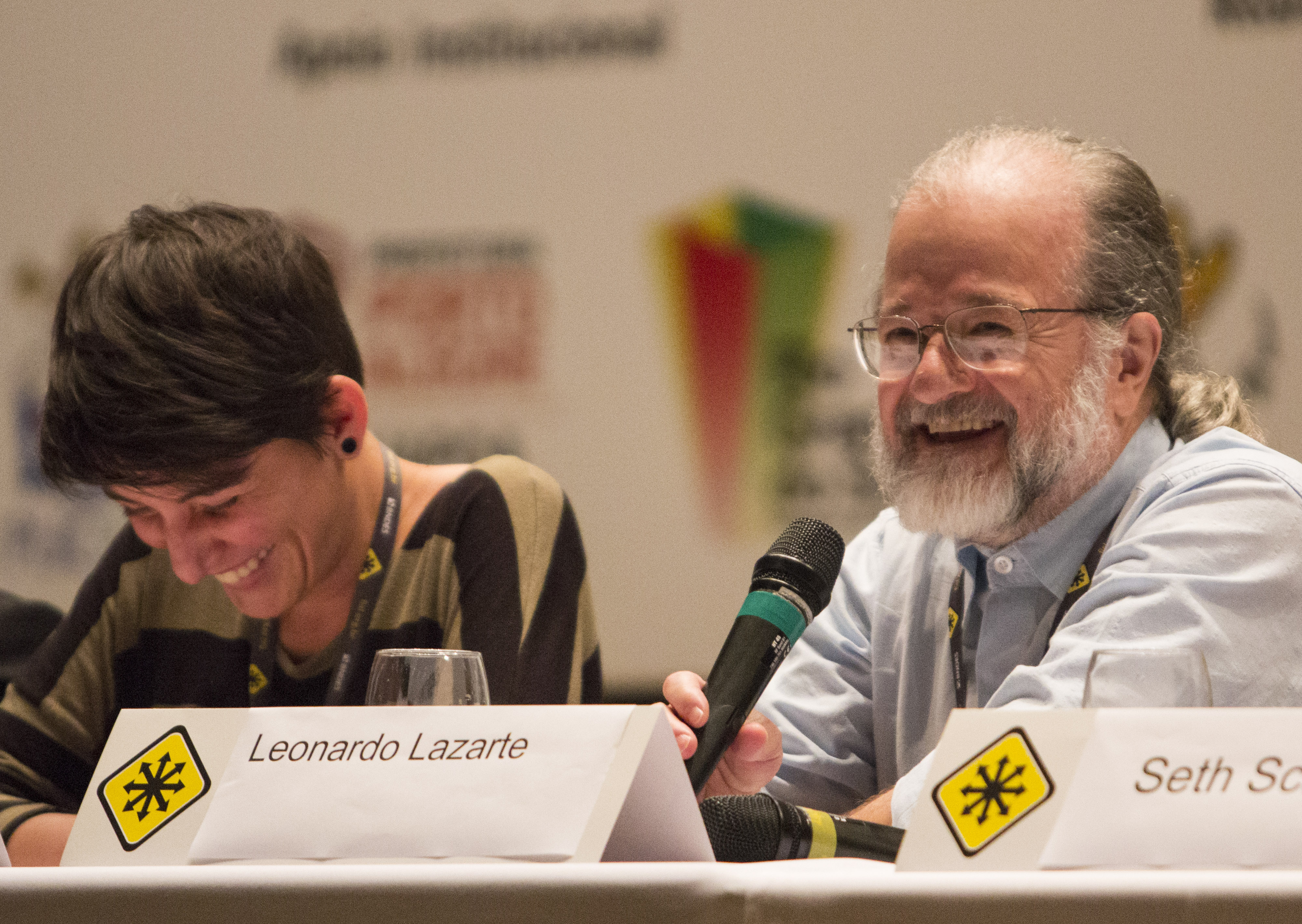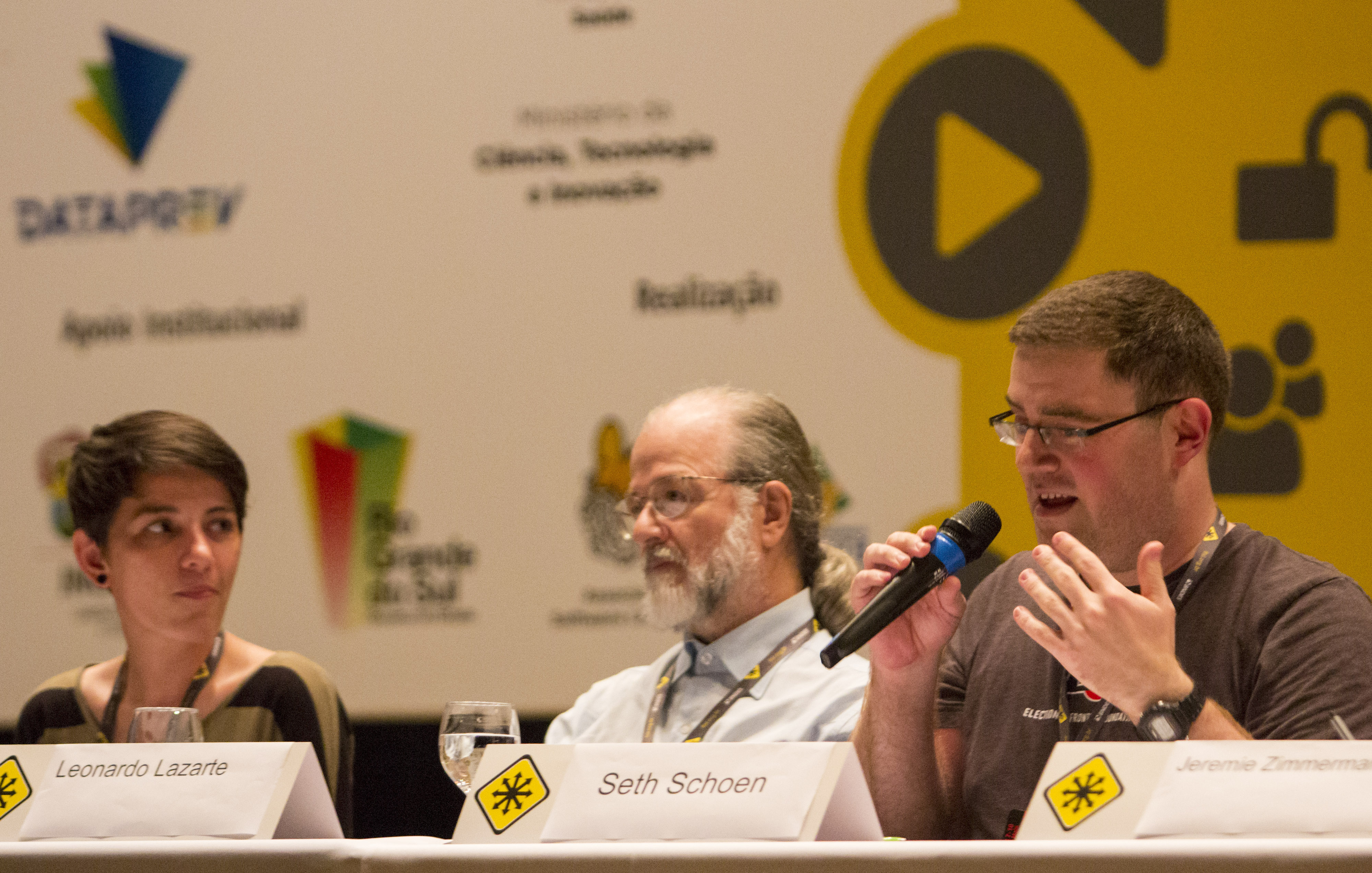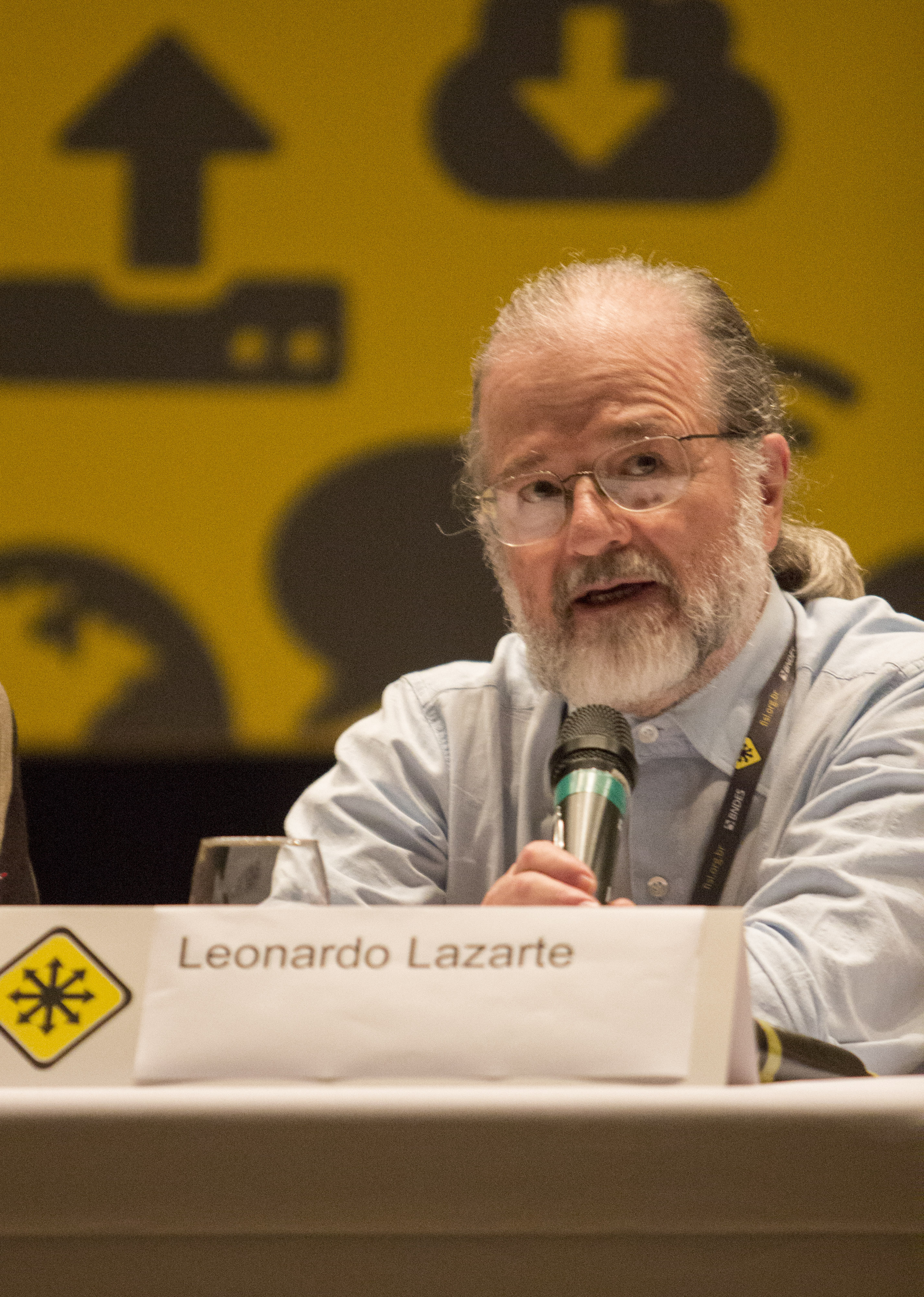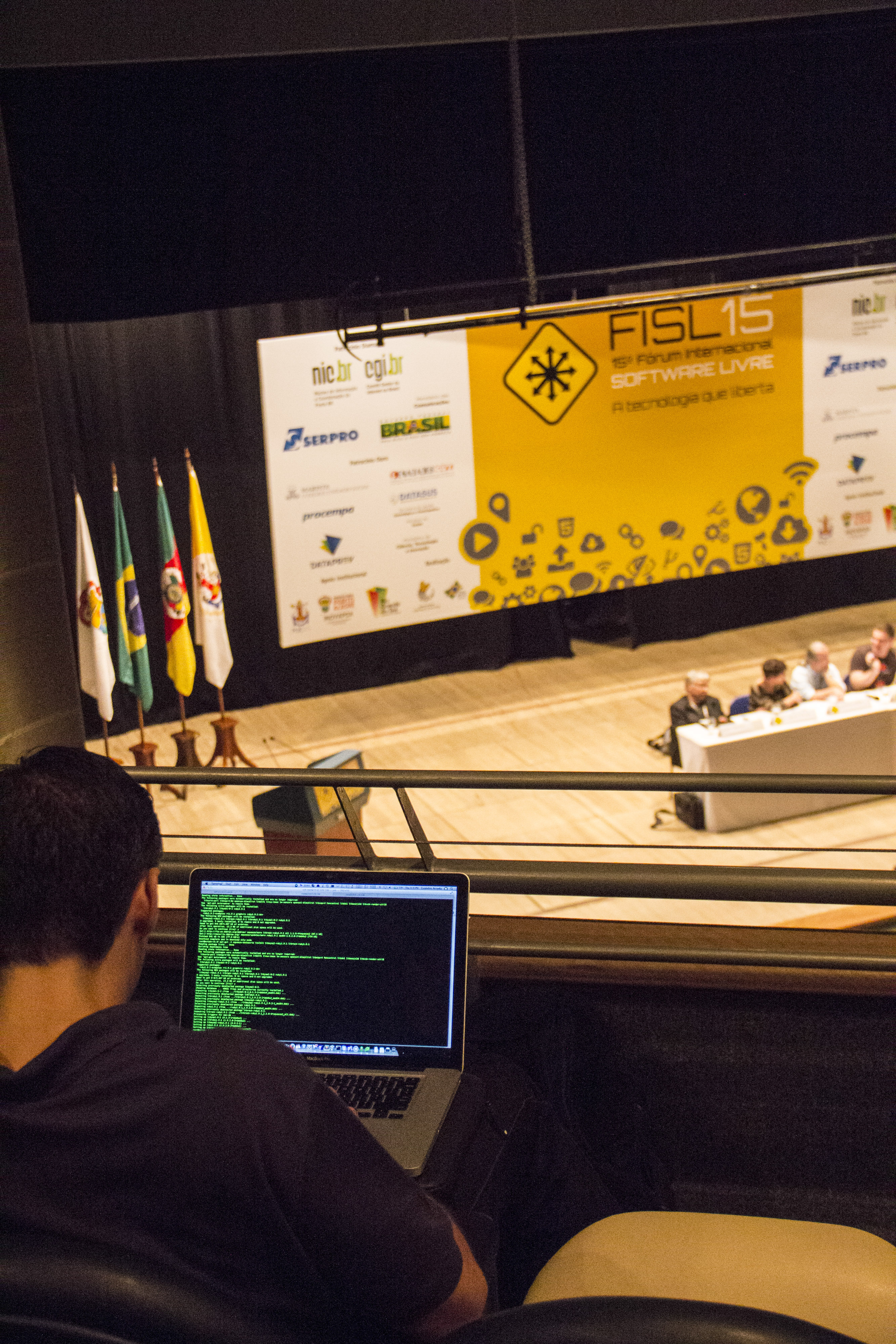
Snowden's leaks highlighted during a debate at FISL, threats to private freedoms and the leadership of Free Software included.
Because of Snowden's leaks, when he made public details of the structure of many surveillance programs at NSA, added to the approval of the Brazilian Legal Internet Framework (Marco Civil da Internet), the panel "Free Software and the Espionage Era" was all about getting top audience. The subjects embraced the real reasons why Snowden disclosures were made, in the first place.
- It is hard to believe he is still alive, after what he's done. It took ten days for the United States government to react, and when it did, it was by means of a poorly written document asking for the deportation of Snowden from Hong Kong. Many things in this hole story are still nebulous. To me, this is about getting people to get used to a totalitarian way of governing, aiming at raising an yet stronger and more agressive seizure of freedom of expression which may occur soon - said Pedro Rezende, teacher of Computing Science at University of Brasilia.
Even the term used by big media used to convey the United States activities was reason for controversy. The use of "espionage" was criticised.
- I make a distinction between "espionage" and "surveillance". Espionage always existed, as a military activity, to raise information about a target. Surveillance is the empowerment of the powerful with social control. It is attacking now, in order to filter data in the future, according to necessity. It is much more serious than espionage - points Rezende.
According to co-founder of the group "La Quadrature du Net" (lawyers defending rights of Net users), Jeremie Zimmermann, we grew surrounded by "friendly" machines, working in our behalf. But nowadays, this relationship is inverted.
- I had an Atari computer which specified every single chip in its Instructions Manual. If you had the patience and "nerdism" to read it all, you could know the machine to its full depth. Today, we possess enemy machines, that we can't even remove batteries and contain chips that we don't know what are for - points Jeremie.
According to one of the oldest employees of the non-profit EFF, Seth David Schoen, it is important to rethink the limitations of Free Software, thinking not only on its potential.
- We're at FISL talking about espionage. It would be interesting not to think only on what we have in our hands, but what we can accomplish, in practice. Espionage didn't start today, but machine use increased a big deal recently, that we can be listened from the outside by a cellphone or a breach in the network - said Schoen.
Seth revealed that cellphone companies know where each user is, all the time, for technical reasons. According to him, activists in Ukranie received sms from the telcom companies saying they were fined by the government as "disturbing makers" because the gov had access to their data and knew they were in the streets protesting.
- These is, as a whole, the broader understanding of what these data mean, for society. What are the risks? What are the possible advantages? What can be made available, and how? How to not violate people's privacy? There are some of the questions to be made. We have to start discussing, so that technology is built with maximum social gain and minimal risks, saus University of Brasilia teacher Leonardo Lazarte.






















